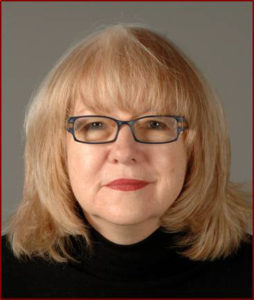Why Women Need to Plan Carefully to Make the Best Retirement Decisions
Reading Time: 2 MinutesLast Updated: March 30, 2020
 At the Women’s Institute for a Secure Retirement (WISER), we are often asked why we focus on women. The answer is simple.
At the Women’s Institute for a Secure Retirement (WISER), we are often asked why we focus on women. The answer is simple.
There are 5.8 million more women than men at age 65. Also, 67 percent of people over age 85 are female. Many individuals age 85 and over end up living in poverty after retirement. Women face greater financial long-term risks than men due to several factors:
- A longer lifespan.
- The need to pay for higher medical expenses.
- The loss of a spouse.
- The looming risk of running out of money.
At age 65, women can expect to live an average of 21 more years while men can expect to live an average of 18 more years. Younger women born from the Baby Boomer generation are also more likely to be single and never married. Additionally, divorce is especially harmful to women’s financial security.
Having more income during retirement is a direct result of the amount of wages earned, saved, and invested during working years and access to employer-sponsored retirement plans. Caring for children, parents, and spouses means some women spend years out of the job market — nine years on average — and those years of zero income are factored into their benefit calculation.
Women are also twice as likely to work part-time to accommodate family needs, usually in jobs with lower salaries and without access to retirement plans. These circumstances result in women having lower Social Security benefits and less money in savings.
In addition, women are in the difficult position of making big decisions while being unable to afford even a small mistake. For example, many women are surprised that their benefits are reduced by 25 percent if they claim Social Security at age 62, and they may not plan for the possibility of widowhood. Many couples may not understand the importance of maximizing the benefit for the surviving spouse; there is a shortfall after the loss of a spouse due to a decrease of one-third to one-half of their monthly benefit amount. We need to educate women about the value of increasing their benefit by replacing “zero” years with “earnings” years and delaying the start of their benefit.
WISER’s goal is to help women make the best decisions they can with the limited resources they may have. Through the National Resource Center on Women and Retirement, operated in partnership with the Administration for Community Living, WISER educates women about the importance of making financial and retirement planning a priority throughout their lives. Starting early, setting up a my Social Security account, learning the rules of the programs they rely on (Social Security and Medicare), and getting good advice can help women prepare for the unique financial challenges they may face in retirement.
Cindy Hounsell is the president for the Women’s Institute for a Secure Retirement (WISER).
Did you find this Information helpful?
Tags: retirement, social security, Social Security benefits
See CommentsAbout the Author
Comments
Comments are closed.

ellen g.
This is also assuming women have the ability to read, to sit down and read in between taking care of a child, being abused by a spouse, boyfriend, child, having health issues after having a child. They can still do everything right & have it stolen by their children or spouse & have no recourse. Then they are viewed as “crazy’ or not having planned properly or a burden or their adult children or society. It is a challenge that gender bias really doesn’t begin to address.
Grace W.
Its true, even within occupations, women receive unequal pay for similar work. Its totally unjust. Among full-time, year-round workers in 2019, median women’s earnings equaled 81.1 percent of median men’s earnings. Controlling for age, education, job tenure, occupation, job title, location, and industry, the figure rises to 94.6 percent.
https://www.gwinnettdivorce.com/
Chelsi V.
Thanks for sharing your article with us.This is really a nice post.
Source:https://tractorgyan.com/tractor/Kubota
Rita H.
Thanks for this post!
Rita Herrero from https://is.gd/v3nd25
Szanne M.
I need to change my bank that my ss check into (I have direct deposit). How do I do this?
V.V.
Hi Szanne. Thanks for using our blog. If you’re receiving Social Security benefits (retirement, survivors, or disability), you can start or update your direct deposit information by using your my Social Security account. If receiving Supplemental Security Income (SSI) or unable to conduct business online, you can start or update your direct deposit by contacting the bank, credit union, or savings and loan association or by calling Social Security at 1-800-772-1213 (TTY 1-800-325-0778) for assistance or you can contact your local Social Security office. Please look for the general inquiry telephone number at the Social Security Office Locator. The number may appear under Show Additional Office Information. Please be aware that our call wait times are longer than normal. We hope this information helps.
See our Frequently Asked Questions web page for more information.